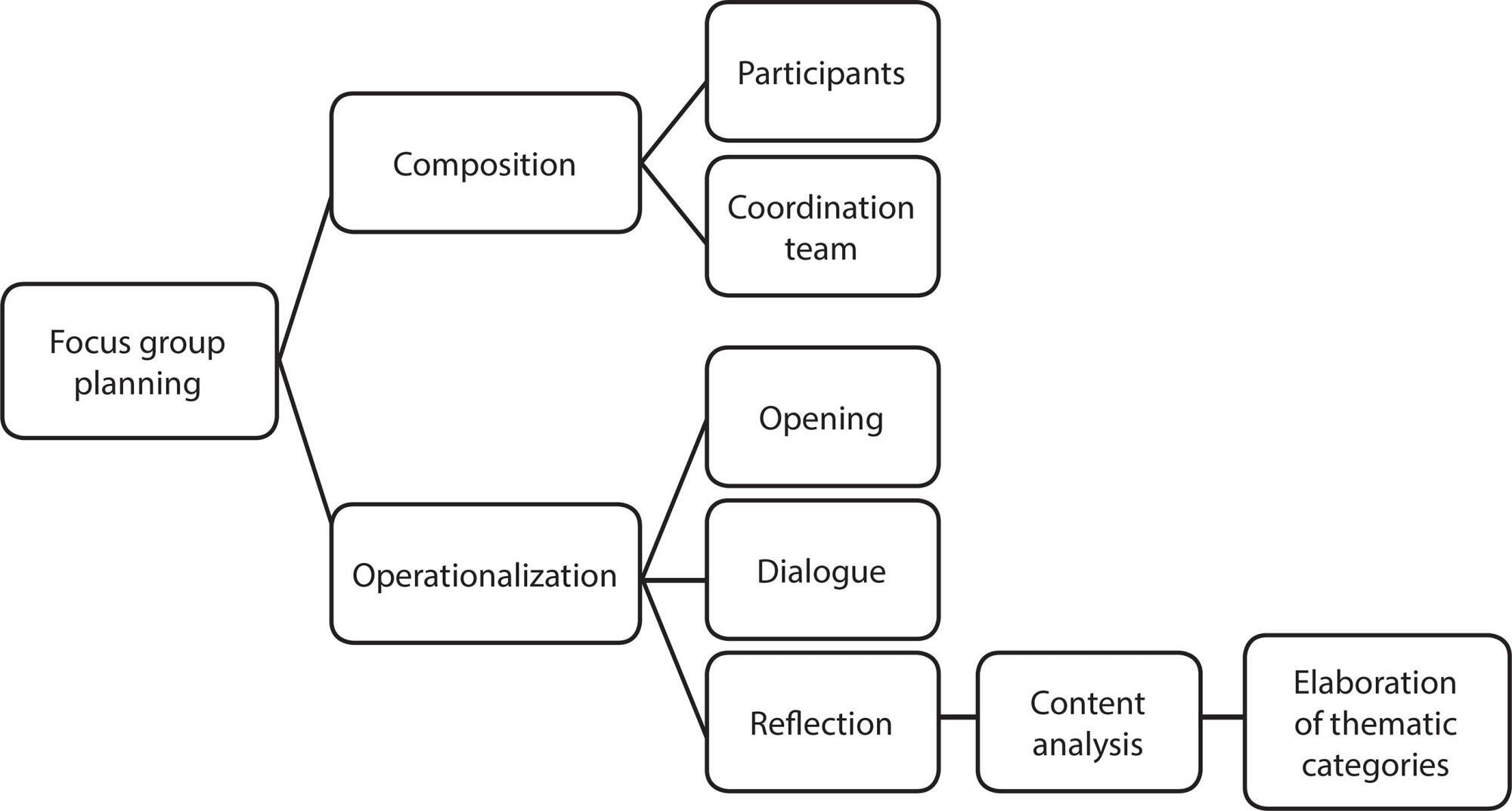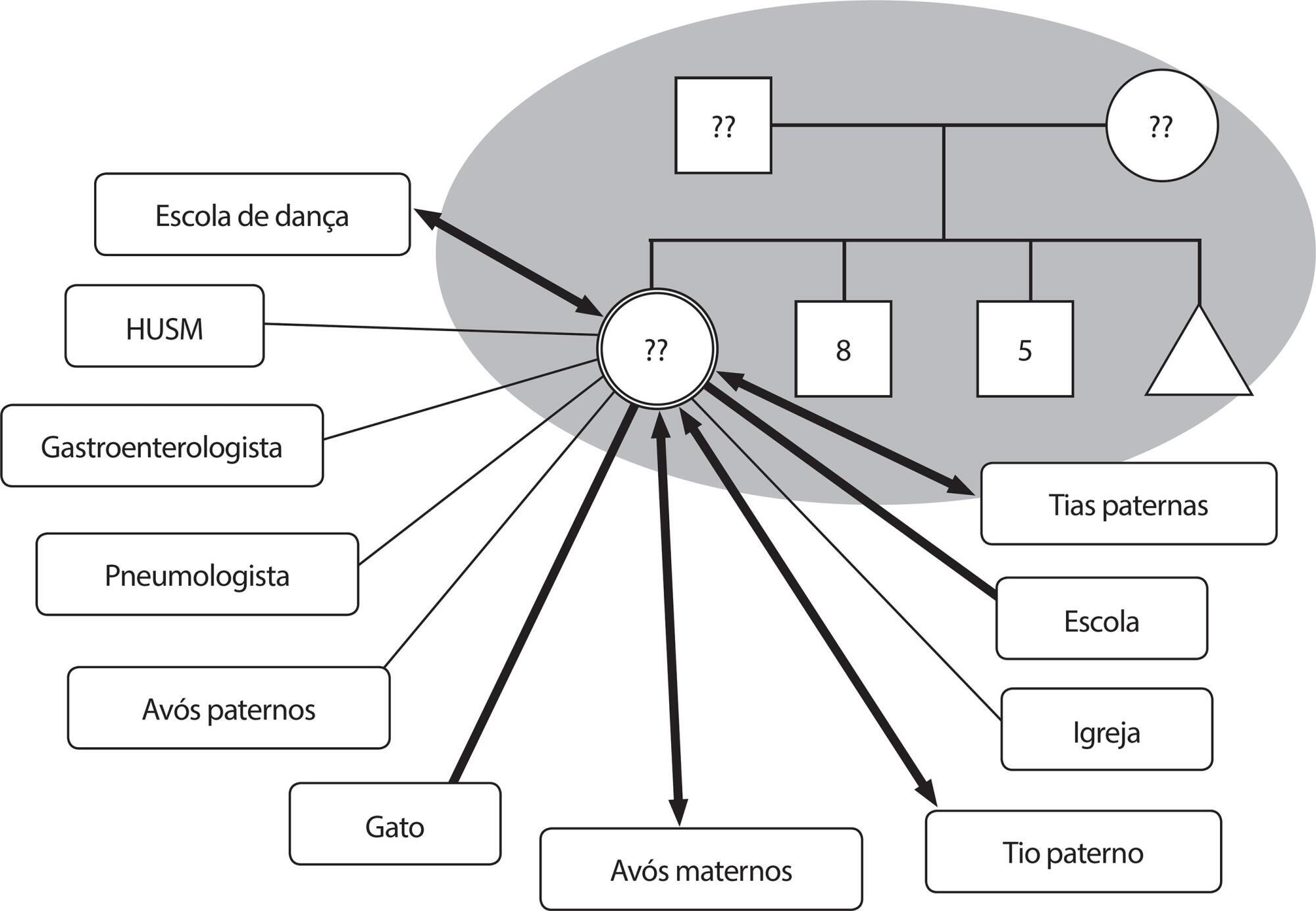-
ORIGINAL ARTICLE
Access to the Unified Health System in the perspective of male homosexuals
Revista Brasileira de Enfermagem. 2020;73(2):e20180688
03-30-2020
Resumo
ORIGINAL ARTICLEAccess to the Unified Health System in the perspective of male homosexuals
Revista Brasileira de Enfermagem. 2020;73(2):e20180688
03-30-2020DOI 10.1590/0034-7167-2018-0688
Visualizações0ABSTRACT
Objectives:
To analyze the perception of male homosexuals regarding the access to the Unified Health System.
Methods:
A qualitative study with male homosexuals in a city in the Northeast Brazil. Eight subjects participated, a socioeconomic questionnaire was used for data collection and a focal group was carried out, in which the narratives were recorded and later transcribed. For the analysis of the speeches, the analysis of thematic content was used.
Results:
The analysis revealed five thematic categories that express the limitations on humanization and reception, as well as in the quality of health care offered to subjects, disregarding the psychosocial and lifestyle-related demands.
Final considerations:
It was emphasized that the focus group technique contributed to the approach of the research with the perception of male homosexuals marked by prejudice and discrimination, reflecting the subjects’ dissatisfaction with the care received in the health services.
Palavras-chave: Access to Health ServicesComprehensive Health CareMale HomosexualityPublic HealthSexual and Gender MinoritiesVer mais
-
ORIGINAL ARTICLE
Resources, objectives and guidelines in a Psychosocial Care Network structure
Revista Brasileira de Enfermagem. 2020;73(1):e20170864
02-10-2020
Resumo
ORIGINAL ARTICLEResources, objectives and guidelines in a Psychosocial Care Network structure
Revista Brasileira de Enfermagem. 2020;73(1):e20170864
02-10-2020DOI 10.1590/0034-7167-2017-0864
Visualizações0ABSTRACT
Objective:
to analyze a Psychosocial Care Network structure, based on the compromise of its resources and meeting objectives and guidelines recommended in Ordinance 3,088/2011.
Method:
an empirical, quantitative study with 123 primary care professionals, psychosocial and emergency care, who work at Western Network of the city of São Paulo. Questionnaires and statistical analysis were applied through the Exact Fisher’s test with 5% significance considering p= <0.05.
Results:
there is compromise of physical resources in the absence of mental health beds in a general hospital (p=0.047); of technological resources in the lack of discussion forums (p=0.036); of human resources in number of teams (p=0.258); and of financial resources (p=0.159). Psychosocial care is the one that most meets the objectives and guidelines.
Conclusion:
there are insufficient physical, technological, human, and financial resources for the work articulated in the three care modalities that are heterogeneous in terms of meeting the objectives and guidelines.
Palavras-chave: Comprehensive Health CareHealth PolicyHealth Services AccessibilityMental HealthMental Health AssistanceVer mais -
ORIGINAL ARTICLE
Assessment of components of crack users’ attention network
Revista Brasileira de Enfermagem. 2020;73(1):e20170835
01-27-2020
Resumo
ORIGINAL ARTICLEAssessment of components of crack users’ attention network
Revista Brasileira de Enfermagem. 2020;73(1):e20170835
01-27-2020DOI 10.1590/0034-7167-2017-0835
Visualizações0ABSTRACT
Objective:
Assess components of the Psychosocial Attention Network (RAPS) in crack user care in a Rio Grande do Sul municipality.
Method:
Qualitative study based on Fourth Generation Evaluation. Data collection occurred in 2014, through participating observation and interviews based on the Hermeneutic-Dialectic Circle. Ten uses, eleven family members, seven managers and eight workers at a Psychosocial Attention Center participated. The Constant Comparative Method was used for data analysis.
Results:
Difficulties were observed in the network articulation with the general hospital, due to prejudice and the lack of structure of the team. SAMU’s (Mobile Emergency Care Service) dependence on the Military Brigade for the service indicates a frailty of the network. The need to re-think the way therapeutic farms operate in the network is a consensus.
Conclusion:
RAPS is being implemented and its concretization depends on the involvement of professionals, managers and social control of users and family members.
Palavras-chave: Comprehensive Health CareCrack CocaineHealth Care ReformMental HealthMental Health ServicesVer mais -
ORIGINAL ARTICLE
Health behaviors in sexual experiences of women in prison
Revista Brasileira de Enfermagem. 2019;72(suppl 3):88-95
12-13-2019
Resumo
ORIGINAL ARTICLEHealth behaviors in sexual experiences of women in prison
Revista Brasileira de Enfermagem. 2019;72(suppl 3):88-95
12-13-2019DOI 10.1590/0034-7167-2018-0092
Visualizações0Ver maisABSTRACT
Objective:
to describe the health behaviors related to the sexual experiences of women in the female prison system from January to March, 2017.
Method:
descriptive study with a qualitative approach. A semi-structured questionnaire containing mixed questions and patient records was used. The data analysis was performed through the Bardin’s content analysis and adopted as reference the Theory of Basic Human Needs.
Results:
18 women, young, single, brown, with a complete fundamental level participated in the study. After this characterization, two categories were evidenced: Health behaviors in sexual experiences and Health care in the face of sexual experiences. 33.3% reported on health behaviors such as Sexually Transmitted Infections (STIs), 27.7% associated with male condom use, 16.6% on prevention of unwanted pregnancies, 11.1% on health care and hygiene.
Final considerations:
it was evidenced that the health behaviors reported by women in sexual experiences are associated with actions to prevent STIs, use of condoms, unwanted pregnancies, and health and hygiene care. However, it is possible to infer that they understand and possess superficial knowledge about health behaviors and that there is no adoption of regular practice in their sexual experiences.
-
ORIGINAL ARTICLE
Care complexity in hospitalized elderly according to cognitive performance
Revista Brasileira de Enfermagem. 2019;72(suppl 2):134-139
12-05-2019
Resumo
ORIGINAL ARTICLECare complexity in hospitalized elderly according to cognitive performance
Revista Brasileira de Enfermagem. 2019;72(suppl 2):134-139
12-05-2019DOI 10.1590/0034-7167-2018-0357
Visualizações0Ver maisABSTRACT
Objective:
to investigate possible differences in care complexity, functional performance and biopsychosocial and health system aspects among hospitalized elderly with or without cognitive decline.
Method:
quantitative, cross-sectional and analytical study in which was used the INTERMED method and cognitive and functional screening scales. We investigated 384 elderly patients admitted to a medical and surgical clinic of a University Hospital located in São Paulo/SP.
Results:
cognitive decline was present in 40.1% of the sample, most of them were longer-lived elderly individuals with less schooling and income, more dependent in activities of daily living and had greater vulnerability in different domains of INTERMED. After adjustments, the elderly with cognitive decline presented greater vulnerability in the psychological domain.
Conclusion:
the relationship between cognitive decline and psychological vulnerability highlights the need to adopt long-term care based on involvement of the family, health team and different services, thereby maximizing the quality of care.
-
ORIGINAL ARTICLE
Inclusion of mental health in primary health care: care strategy in the territory
Revista Brasileira de Enfermagem. 2019;72(6):1677-1682
10-21-2019
Resumo
ORIGINAL ARTICLEInclusion of mental health in primary health care: care strategy in the territory
Revista Brasileira de Enfermagem. 2019;72(6):1677-1682
10-21-2019DOI 10.1590/0034-7167-2018-0806
Visualizações0ABSTRACT
Objective:
To analyze the strategies, challenges and possibilities of the articulation between mental health and primary health care from the perspective of health managers.
Method:
Exploratory, qualitative research carried out with 28 managers of mental health and primary care. The data were collected through semi-structured interviews between July and November 2013 and submitted to thematic content analysis.
Results:
The inclusion of mental health actions in primary care made it possible, in the view of managers, to increase users’ access to the care they need. This care strategy allows the extension of care practices in the territory, with matrix support as the main tool for the implementation of this care strategy.
Final considerations:
The articulation between primary care and mental health is a powerful device for psychosocial care, but it demands a new conformation of the Psychosocial Care Centers (Caps) and primary care services.
Palavras-chave: Comprehensive Health CareDeinstitutionalizationMental HealthNursingPrimary Health CareVer mais -
ORIGINAL ARTICLE
Best practices in the delivery process: conceptions from nurse midwives
Revista Brasileira de Enfermagem. 2019;72(2):455-462
04-18-2019
Resumo
ORIGINAL ARTICLEBest practices in the delivery process: conceptions from nurse midwives
Revista Brasileira de Enfermagem. 2019;72(2):455-462
04-18-2019DOI 10.1590/0034-7167-2018-0477
Visualizações0Ver maisABSTRACT
Objective:
to know the conceptions of nurse midwives about the care guided in the best practices to the women in the delivery process.
Method:
descriptive research with a qualitative approach developed in a Federal Maternity-School. Semi-structured interviews were conducted with 20 nurse midwives, and the speeches were categorized according to the thematic content analysis proposed by Franco.
Results:
the study reveals that care based on best practices should be based on scientific knowledge, avoiding unnecessary interventions and encourages the use of non-pharmacological techniques for pain relief, appropriate environment, individualized care, the bond between professional and parturient, as well as its role.
Final Consideration:
while criticizing the excess of interventions, nurse midwives value noninvasive techniques and interpersonal relationships, as well as the subjectivities of the parturient that contributes to the humanized care in the delivery process.




